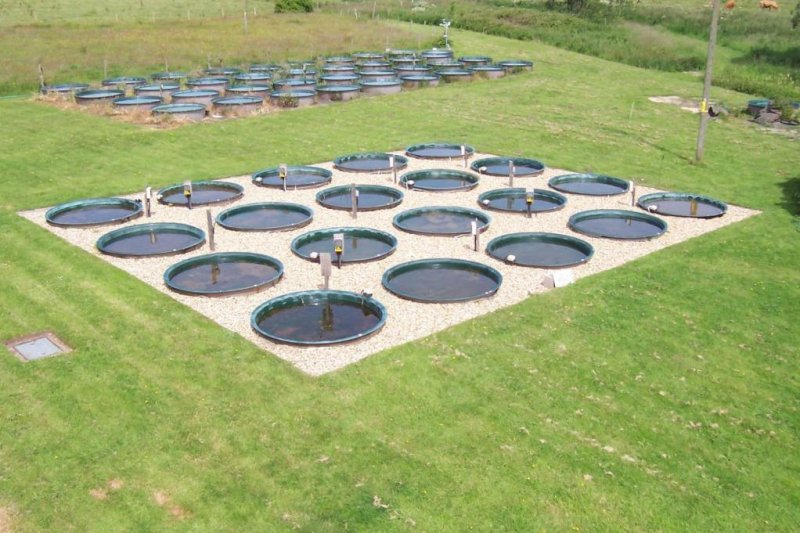Experiments proved small ponds store less carbon and emit more methane as their temperatures rise. Photo by University of Exeter
Feb. 20 (UPI) -- New research suggests rising temperatures in small bodies of water, like ponds, could accelerate global warming.
Understanding and predicting climate change requires an understanding of the many feedback loops that affect carbon storage and emissions, as well as heating and cooling processes. Ponds are the source of one of those positive feedback loops, where warming begets warming.
Ponds both absorb and store carbon dioxide, and also emit methane. Experiments by scientists at the University of Exeter and Queen Mary University showed ponds become less efficient at absorbing and storing CO2 as they warm. Warmer ponds also released methane at an accelerated rate.
Researchers measured the chemical metabolism of an array of small ponds over a seven-year period. Scientists raised to the temperatures of the ponds between 4 and 5 degrees Celsius of the course of the seven-year experiment.
At the end of the seven years, carbon dioxide absorption rates were reduced by 50 percent, while methane emission rates doubled. Scientists published the results in the journal Nature Climate Change.
"This is the first experiment to investigate the long-term effects of warming in aquatic ecosystems," Gabriel Yvon-Durocher, a professor of environmental science at Exeter, said in a news release. "Given the substantial contribution small ponds make to the emission of greenhouse gases, it is vital to understand how they might respond to global warming."
Small ponds account for nearly half of all inland methane emissions.
"The amplified effects of experimental warming we have observed in ponds are different to those we typically see on land, where large initial effects of warming appear to diminish over the long term," Yvon-Durocher said. "This accelerating effect in ponds, which could have serious impacts on climate change, is not currently accounted for in Intergovernmental Panel on Climate Change models."















